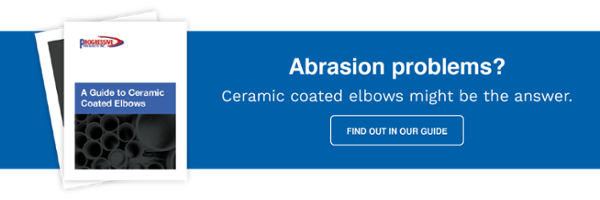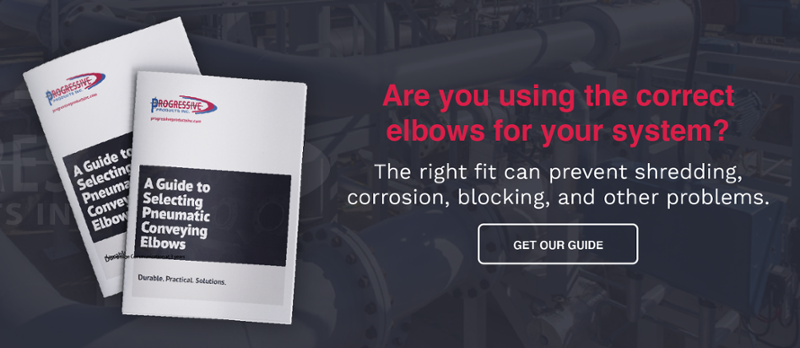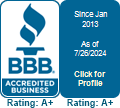In this blog post, we explore the properties of ceramic coating and why, depending on the material you’re conveying, it can be so important to have ceramic coated components in your pneumatic conveying system.
What is Ceramic Coating?
Ceramic coating is when layers of ceramic material are added to a typically metal surface (ceramic lining follows the same principle, but is added to the sub-surface). At Progressive Products, for example, we apply layers of ceramic that are around ½” thick. This coating has various functions, such as strengthening the material and protecting it against up to 300°F heat, wear, and abrasive friction. Ceramic coating has many different industrial applications, the most important of which is protecting conveying components and equipment, such as pipes, tubes, and other fixtures, against abrasion.
Properties of Ceramic Coating
Ceramic coatings and linings have various properties that can either be considered as advantages or disadvantages, depending on what you’re conveying in your system. It’s important to be aware of the properties of ceramic coating to better understand where or in what applications ceramic coated and ceramic lined components should be used.
Properties of ceramic coatings and linings include:
-
Hardness
Industrial ceramics are rated nine plus out of 10 on the Mohs hardness scale. By comparison, the hardest known substance, diamond, is rated 10. This hardness scale compares substances based on resistance to scratches by other substances. Ceramic coatings, even in very thin layers, cannot easily be worn down.
-
Chemical inertia
Ceramics vary in chemical composition but they are typically metallic oxides and carbides. Some common examples include calcium carbide, aluminum carbide, silicon dioxide, and zirconium oxide. These compounds do not easily react with other chemicals, making them highly stable.
-
Low density
Some ceramics can be very lightweight compared to volume, which makes them low density. This means that they do not significantly add weight to components even when thick layers of coating are added. It’s important to note that some technical ceramics are high density in order to make them gas impenetrable - another important property for some industries.
-
Refractory
Unlike metallic substances, some ceramic materials can withstand high intensity heat without being deformed. They can maintain their shape and structural integrity even at high temperature. The ceramic tile we manufacture at Progressive Products has this property.
-
Poor conductor
Because of their molecular structures, ceramics are poor conductors of heat and electricity. This property makes them ideal as insulators.
-
Abrasion resistant
Pneumatic conveying systems, especially where pipes and tubes bend at the elbow, are subject to sliding abrasion from the particles being conveyed. Ceramic coating can help minimize wear due to abrasive actions as it’s so resistant to abrasion.
-
Impact resistant to small particles
The impact of particles being conveyed in a pneumatic conveying system is common just off the tangential line of an elbow where particles hit the curved section. Ceramic coatings provide impact resistance, mainly when you’re conveying smaller particles. It’s less effective against impact from large and heavier particles conveyed at high speed.
-
Brittleness
Ceramic coatings might be very hard in terms of scratch resistance, but they are brittle. This means that they cannot withstand strong impact, as cracks can form if they’re impacted too hard.
-
Inflexibility
Unlike metal materials, ceramics are not malleable. This makes them inflexible to shear stress forces and expansions-contractions of the metal surfaces they protect. Too much vibration, for instance, may cause cracks in a ceramic coating.
To find out more about ceramic coating, check out our complete guide. If you need help in selecting the right ceramic coated components for your pneumatic conveying system, it’s best to talk with an expert.
At Progressive Products, we won’t sell you anything you don’t need – contact us today to find the right solution for you.



